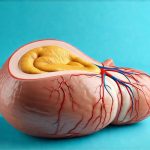Gastroesophageal reflux disease (GERD) is a surprisingly common condition affecting millions worldwide, often characterized by persistent heartburn and acid indigestion. However, many individuals experience a far wider range of symptoms than just these digestive complaints. These less obvious manifestations can make diagnosis challenging, as people don’t always connect seemingly unrelated issues – such as numbness in the fingers – to their reflux. Understanding the complex interplay between GERD and these atypical presentations is vital for accurate recognition and effective management. It’s important to remember that symptoms vary greatly from person to person, and what one individual experiences might look drastically different for another.
The core issue in GERD lies with the lower esophageal sphincter (LES), a muscular ring at the bottom of the esophagus. Normally, this sphincter opens to allow food into the stomach and then closes tightly to prevent stomach acid from flowing back up. When the LES weakens or relaxes inappropriately, acid reflux occurs, leading to irritation and inflammation. This can cause damage to the esophageal lining over time, but it’s also capable of triggering a cascade of systemic effects that extend beyond just digestive discomfort. These effects are often what lead to more unusual symptoms, highlighting the need for a holistic approach to understanding this condition and its potential presentations. Understanding the role of bile in digestion can help clarify these processes too.
The Connection Between GERD and Neurological Symptoms
The link between GERD and neurological symptoms like numbness in the fingers isn’t immediately obvious, but it’s rooted in several physiological mechanisms. It’s not that acid is directly affecting the nerves in your hands; rather, it’s about how chronic inflammation and nutritional deficiencies – often associated with long-term GERD – can impact nerve function. One key factor is vagal nerve stimulation. The vagus nerve plays a crucial role in connecting the gut to the brain, essentially acting as a two-way communication highway. Frequent acid reflux can irritate the esophagus and stimulate the vagus nerve, potentially leading to referred pain or altered sensation in other parts of the body, including the extremities.
Furthermore, chronic GERD can contribute to malabsorption of essential nutrients like vitamin B12. Vitamin B12 is vital for maintaining healthy nerve function, and a deficiency can manifest as tingling, numbness, and even weakness in the hands and feet – a condition known as peripheral neuropathy. This isn’t always immediately apparent and may develop gradually over time, making it difficult to attribute to GERD without proper investigation. The inflammatory response associated with chronic acid reflux also has systemic effects, potentially contributing to nerve inflammation and dysfunction. Understanding the livers role in these processes can be valuable too.
Finally, consider that some individuals experiencing GERD symptoms might be simultaneously dealing with underlying conditions like carpal tunnel syndrome or thoracic outlet syndrome which can independently cause finger numbness. It’s therefore essential to rule out other potential causes before attributing the symptom solely to GERD. Accurate diagnosis requires a comprehensive evaluation by a healthcare professional.
Possible Mechanisms Explaining Finger Numbness
The precise mechanisms behind this connection are still being researched, but several theories offer plausible explanations:
– Esophageal-Vagal Reflex: As mentioned earlier, irritation of the esophagus can stimulate the vagus nerve, potentially triggering neurological symptoms distant from the digestive tract. This is a form of referred pain or altered sensation.
– Nutritional Deficiencies: Long-term GERD and associated dietary changes or malabsorption can lead to deficiencies in nutrients crucial for nerve health, such as vitamin B12, magnesium, and iron.
– Inflammation and Nerve Compression: Chronic inflammation from GERD might indirectly contribute to nerve compression syndromes like carpal tunnel syndrome by causing swelling and fluid retention in surrounding tissues.
It’s important to understand that these mechanisms aren’t mutually exclusive; they can often interact with one another, creating a complex picture of symptom presentation. For instance, someone with GERD-induced nutritional deficiencies might be more susceptible to nerve compression if they also have carpal tunnel syndrome. Identifying the specific contributing factors in each individual case is crucial for effective management.
Differentiating GERD-Related Numbness from Other Causes
It’s critical not to self-diagnose, as finger numbness can stem from a wide range of conditions beyond GERD. Some common alternative causes include:
– Carpal Tunnel Syndrome: Compression of the median nerve in the wrist, causing numbness and tingling in the thumb, index, middle, and part of the ring finger.
– Thoracic Outlet Syndrome: Compression of nerves and blood vessels in the space between your collarbone and first rib, potentially leading to pain, numbness, and weakness in the arm and hand.
– Peripheral Neuropathy: Nerve damage due to various factors like diabetes, vitamin deficiencies, or autoimmune diseases.
– Cervical Radiculopathy: A pinched nerve in the neck, causing radiating pain, numbness, and weakness in the arm and hand.
Distinguishing between these possibilities requires a thorough medical evaluation. Your doctor will likely ask about your symptom history, perform a physical exam to assess neurological function, and potentially order tests like nerve conduction studies or electromyography (EMG) to evaluate nerve health. It’s also important to consider any other symptoms you’re experiencing alongside the finger numbness – for example, wrist pain might suggest carpal tunnel syndrome, while neck pain could point to cervical radiculopathy.
Managing GERD and Potential Numbness Relief
Addressing the underlying GERD is often key to alleviating related neurological symptoms like finger numbness. This typically involves a multi-faceted approach:
1. Lifestyle Modifications: These include elevating the head of your bed, avoiding trigger foods (such as caffeine, alcohol, spicy foods, and fatty foods), eating smaller, more frequent meals, and losing weight if overweight or obese.
2. Medications: Over-the-counter antacids can provide temporary relief, while proton pump inhibitors (PPIs) or H2 receptor antagonists prescribed by a doctor can help reduce acid production in the stomach. Understanding the role of antacids is important here.
3. Nutritional Support: Addressing any nutritional deficiencies through dietary changes or supplementation – particularly vitamin B12 – can be crucial for nerve health.
It’s important to work closely with your healthcare provider to develop a personalized management plan that addresses your specific needs and symptoms. If finger numbness persists despite GERD control, further investigation is warranted to rule out other potential causes and ensure appropriate treatment. Remember that managing GERD isn’t just about reducing heartburn; it’s about addressing the underlying mechanisms that can contribute to a wide range of systemic effects. The connection between GERD and throat clearing should also be considered in overall management. You might even find relief from chewing gum, per the role of chewing. Finally, remember that the link between food and mood can impact GERD symptoms too.


















